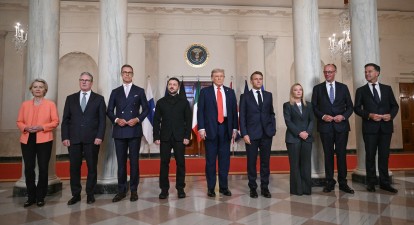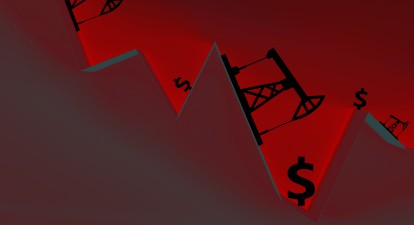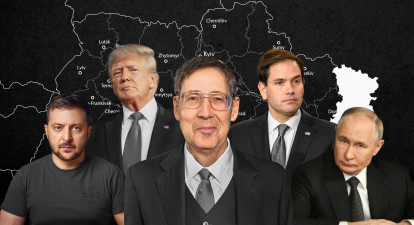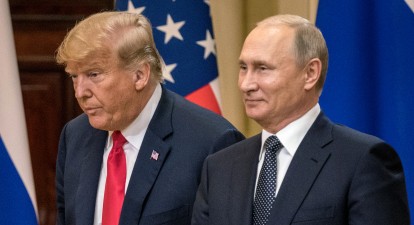
Ursula von der Leyen, Keir Starmer, Alexander Stubb, Volodymyr Zelensky, Donald Trump, Emmanuel Macron, Giorgia Maloney, Friedrich Merz and Mark Rutte during a meeting in Washington. Photo Getty Images
Europe, once the cradle of democracy, the Renaissance and the great discoveries, has become the butt of ridicule. Its leaders, such as Macron, Starmer and von der Leyen, are powerless and lack the vision to solve the global problems that threaten the future of the continent. Why is the old continent gradually becoming a political periphery? Analysis by The Telegraph.
Buy an annual subscription to six Forbes Ukraine magazines for the price of four issues. If you value the quality, depth, and power of real-world experience, this subscription is for you.
The Telegraph columnist Alistair Heath wrote an article criticizing the actions of the current European authorities and their inability to confront the challenges of today. Forbes Ukraine highlighted eight conclusions.
Europe, once a source of great achievements and cultural shifts, has today become weak, lacking initiative and virtually helpless on the global stage. The old continent, which gave the world democracy, the Renaissance, the industrial revolution and the ideals of human rights, now looks like a political periphery that cannot effectively respond to new challenges. And from a former leader, it has turned into a “laughing stock of the world.”

Popular Category Money Date October 01 A trend among retailers. Rozetka is the fourth retail chain to launch its own payment cards. How can the company make money from this?
European leaders, such as Keir Starmer in the UK, Emmanuel Macron in France, and Ursula von der Leyen in the EU, have become symbols of this impotence. They are incompetent, unable to lead their countries out of crisis and implement a new vision for the future.
Political inaction and leadership failure
European leaders, including Keir Starmer, Emmanuel Macron, Ursula von der Leyen and George Maloney, are incompetent and visionless. Alistair Heath describes them as political dwarfs who only watch their countries slide into uncertainty and hopelessness.
Despite the strong historical foundations of European countries, current leaders are unable to confront new challenges.
Economic stagnation and regulation
Europe today cannot compete with other major economies such as the US and China, and this is visible in all areas. European countries cannot modernize their economies because they are over-regulated, and taxes and regulations are becoming increasingly burdensome for businesses.
In addition, Europe aims to achieve “zero carbon emissions,” which, according to the author, leads to rising prices, bankruptcies of businesses, and poverty for families.
This complicates economic development and raises the cost of living.
Security and military unpreparedness
Europe continues to deny the need to ensure its defense capabilities. Unlike the United States, which has great military power, European states, due to the refusal of necessary reforms, have not been able to create their own sustainable defense, even after numerous attacks from Russia.
The combined GDP of the EU countries is 10 times larger than that of Russia, and the population is 3.7 times larger. Despite this, Europe has not been able to help Ukraine defeat the Kremlin and is forced to constantly ask for help from the United States. At the same time, the UK has more parking inspectors than soldiers, the author notes.
Even after three years of Russia's war against Ukraine, Europe has failed to create effective anti-aircraft and anti-missile systems, despite the large economic resources that would be able to finance them. Such as the Israeli “Iron Dome”, which could protect against missile attacks.
The author compares this to the lack of a strategic plan and rapid response to new geopolitical threats, which jeopardizes the security of EU countries.
The author calls Russian President Vladimir Putin a “fake Stalin” who has no chance of defeating Ukraine. He compares him to a dictator incapable of making real conquests, and questions his ability to realize his ambitions to restore Russian imperial influence.
It is argued that Putin has become embroiled in a pointless conflict and has no chance of achieving his goal of defeating Ukraine by January 2026. He is also doomed because his support is limited to countries like Iran and Belarus, and his imperial aspirations are a farce.
Social and demographic problems
Europe is suffering from a demographic crisis: the birth rate on the continent is falling sharply, and the social security system cannot withstand the load due to the aging population.
At the same time, mass immigration without proper integration leads to increased radicalism, conflicts, and criminality. Unresolved immigration problems only deepen social divisions.
Another serious problem is the rapidly changing labor market. The emergence of new technologies, including artificial intelligence, threatens to destroy a significant number of jobs, especially in Western countries.
European states are failing to create new opportunities for their youth and are often unable to ensure the economic independence of their citizens due to rising housing prices and inflation. Meanwhile, education systems are increasingly turning into “boot camps” where students are taught an ideology that has no practical application.
Moral and cultural degradation
Europe is not only economically and politically declining, but also experiencing moral and cultural decline. The adoption of postmodern ideas, the rejection of Christian values, and the fascination with Marxist ideologies are leading to the collapse of traditional cultural foundations. Europe no longer defends its past, but is trying to become an ever-changing platform for globalization, where national interests are replaced by universal principles, which leads to a loss of identity.
This has led to a loss of identity, the spread of ideologies that reject democracy, national sovereignty, and traditions.
Foreign policy and geopolitical issues
Europe has become slow and unable to respond quickly to changes in the global environment. The continent's political, economic, and military institutions have slowed down to such an extent that even modern crises, such as the war in Ukraine, cannot lead to an adequate and effective response from the EU or individual countries.
Europe's strategic weakness is that instead of its own efforts, it constantly turns to the United States for help.
Europe is not only unable to solve its internal problems, but is also becoming invisible on the world stage. At the same time, the United States, particularly under Donald Trump, often criticizes European powerlessness in international forums. Europe has failed to use its economic potential to strengthen its position on the world political stage.
Energy dependence and loss of self-sufficiency
Europe continues to import large amounts of energy from Russia even after sanctions were imposed on it. This shows how dependent European countries are on Russian energy supplies, which calls into question their ability to achieve energy independence.
Imports of Russian oil and liquefied natural gas have increased, despite statements about the cessation of such supplies.
Uncertainty of the future
Alistair Heath ends his article on a sad note, describing Europe as a civilization that cannot change course and respond to modern challenges in a timely manner. While other parts of the world, including the United States, China, and India, are actively changing their development strategies, Europe is becoming increasingly backward.
Due to its powerlessness and lack of a unified plan of action, Europe risks permanently losing its influence and significance on the world stage.
Europe is on the brink of collapse. The lack of political will, the inability to adapt to new realities, and the lack of strategic vision threaten European states.
All these problems – economic, social, security and cultural – are pushing Europe ever closer to the margins of world politics. It is time to change course, but will it have the political courage to do so?
Materials on the topic

Category World Date September 25 The US is (not) withdrawing from the peace process. How do diplomats in Kyiv and Europe interpret Donald Trump's new statements regarding the war in Ukraine? Analysis Forbes Ukraine

Category World Date September 24 “Time for Ukraine to Act.” Trump has changed his rhetoric regarding the war in Ukraine. Why is such a U-turn dangerous? Analysis by NYT and Reuters

Category World Date September 19 Cautious diplomacy . Pressure on Russia, the oil issue and problems around Ukraine and Palestine. Five conclusions from the meeting between Donald Trump and Keir Starmer from foreign media






